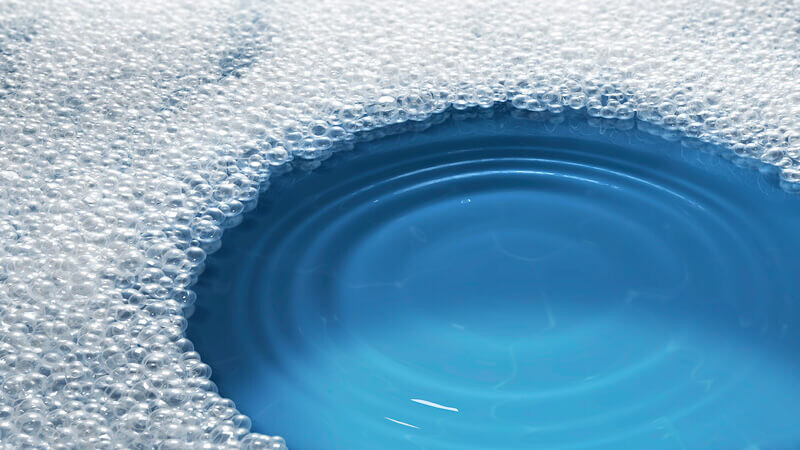Effective Use of Defoamers in the Pharmaceutical Manufacturing Process
Effective Use of Defoamers in the Pharmaceutical Manufacturing Process
Blog Article
The Duty of Defoamers in Enhancing Item Quality and Performance
Defoamers serve as necessary ingredients that reduce this issue, ensuring smoother production workflows while enhancing the visual and practical qualities of the last items. The choice of the proper defoamer can be vital to achieving optimal results, increasing essential concerns about formula compatibility and efficiency metrics that warrant further exploration.
Understanding Defoamers
Understanding the role of defoamers is vital for preserving product high quality throughout numerous industries. Defoamers are chemical ingredients designed to stop the formation and lower of foam in liquid systems, which can adversely affect procedures such as mixing, filling, and surface area stress. Foaming can cause inadequacies, item flaws, and compromised visual appeal, making defoamers a vital component in producing operations.
In commercial applications, defoamers aid to enhance item uniformity and security. For instance, in the paint and finishes sector, foam can conflict with the application process and the final coating. In food and drink manufacturing, extreme foam can impede bottling and product packaging performance. The effective use defoamers not just ensures smoother production procedures but additionally adds to superior product performance.
Additionally, the selection and solution of a defoamer must align with particular application requirements, such as compatibility with various other components, performance under differing temperature and pH problems, and possible regulatory restrictions. Eventually, comprehending defoamers' functions and their significance in numerous solutions is critical for maximizing manufacturing and guaranteeing the best quality end items.
Types of Defoamers
Defoamers can be classified into several types based on their make-up and device of activity. The key types include silicone-based, non-silicone organic, and inorganic defoamers.
Silicone-based defoamers are amongst one of the most reliable, largely because of their ability to spread out promptly on the liquid surface and disrupt foam development. Their distinct chemical framework enables remarkable security, making them suitable for high-temperature applications and environments with differing pH degrees.
Non-silicone natural defoamers, often composed of natural oils or fats, are valued for their biodegradability and reduced toxicity. These are commonly utilized in food and drink applications where safety and security and ecological impact are critical.
Not natural defoamers, which consist of materials like talc or calcium carbonate, act by boosting the density of the fluid, therefore lowering foam stability. They are frequently made use of in commercial procedures where compatibility with various other materials is not an issue.
Each sort of defoamer has unique benefits and restrictions, enabling customized options depending upon the particular lathering concerns encountered in numerous applications. Comprehending these distinctions is vital for optimizing performance and attaining preferred product top quality.
Applications Throughout Industries
Many markets leverage defoamers to improve item high quality and functional efficiency. In the food and drink sector, defoamers are critical in procedures such as brewing and dairy manufacturing to avoid foam development, which can lead to inefficiencies and item inconsistency. By managing foam, producers can guarantee far better yield and an extra uniform item.
In the pharmaceutical sector, defoamers play a crucial duty in the formula of fluid medicines, where extreme foam can hamper blending and precise dosing. Their usage helps maintain the integrity of the formulas and assists in smoother manufacturing processes.
The paint and coverings sector additionally counts on defoamers to improve the efficiency of products throughout application. By decreasing foam, these ingredients make sure a smoother surface and enhance the aesthetic high qualities of the last product.

Advantages of Making Use Of Defoamers
While the application of defoamers differs throughout sectors, their advantages regularly boost item top quality and process performance. One considerable benefit is the reduction of foam formation throughout producing processes, which can or else bring about manufacturing hold-ups and variances in item high quality. By decreasing foam, defoamers enable a smoother flow of products, facilitating a lot more reliable procedures and lowering the possibility of equipment breakdowns.
Additionally, the usage of defoamers can boost the appearance and structure of end products. In markets such as finishes, paints, and food processing, excessive foam can endanger the visual aesthetics and total high quality, while the ideal defoamer application makes certain an uniform coating and preferable features. Defoamers can add to set you back savings by reducing waste during manufacturing and maximizing the use of raw materials.

Picking the Right Defoamer
Picking the appropriate defoamer is important for enhancing manufacturing processes and making sure product quality. The selection of defoamer affects not just the performance of foam control however also the total performance qualities of the end product. Factors to think about consist of the type of application, the chemistry of the formula, and the environmental problems under which Continued the product will be made use of.
Different markets might need specific defoamer types, such as silicone-based, natural, or polymeric defoamers. Understanding the compatibility of the defoamer with the main active ingredients is important to stay clear of adverse responses that might endanger product integrity. Furthermore, the defoamer's efficiency in various temperatures and pH levels have to be evaluated to ensure constant performance.
Testing the defoamer in small-scale applications can over here give important understandings right into its efficiency and viability. Consideration of regulative conformity, particularly in food, drugs, and cosmetics, is paramount in selecting a defoamer. Ultimately, an extensive assessment of these elements will certainly result in the choice of a defoamer that not just regulates foam properly however additionally improves the top quality and performance of the end product.
Final Thought

To conclude, defoamers are important ingredients that significantly enhance product high quality and efficiency throughout different industries. By successfully decreasing foam formation, these agents not just boost functional performance but likewise add to the aesthetic and functional integrity of products. The tactical option and application of defoamers lead to cost savings, enhanced resource usage, and boosted consumer contentment. In general, the relevance of defoamers in industrial procedures can not be overstated, as they play a vital duty in accomplishing high-quality and constant outcomes.
Foaming can lead to ineffectiveness, item defects, and jeopardized visual appeal, making defoamers an essential component in producing procedures.
Report this page